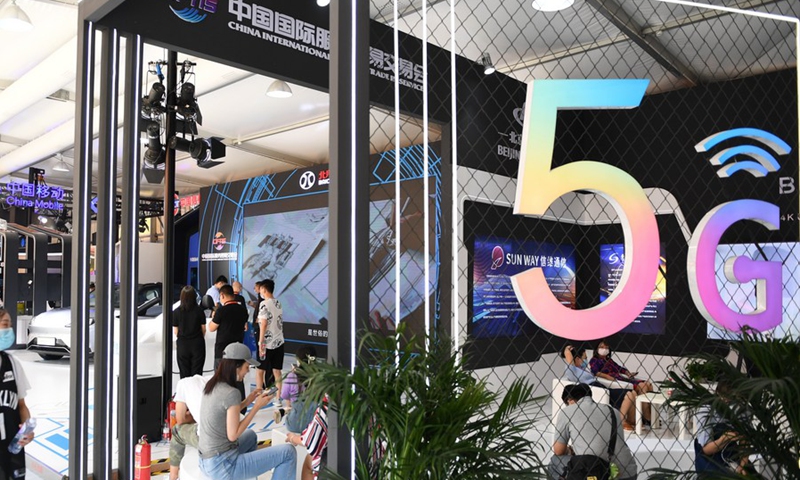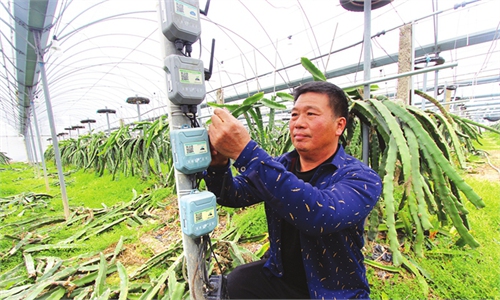
Photo taken on Sept. 5, 2020 shows a view of the 5G communication services exhibition area of the 2020 China International Fair for Trade in Services (CIFTIS) in Beijing, capital of China. (Xinhua/Zhang Chenlin)
As global technology contest, digital economy in particular, becomes more frenetic in recent years amid the fourth Industrial Revolution, Chinese tech firms are calling for joint efforts in making technology breakthroughs while accelerating globalization pace, ahead of the country's annual two sessions, a key event on China's political calendar.
Starting on Friday, the 13th National People's Congress (NPC) will hold its fourth annual session, and the fourth session of the 13th National Committee of the Chinese People's Political Consultative Conference (CPPCC) will be convened too.
Li Dongsheng, founder of TCL also a NPC deputy, proposed the central government to build a "nationwide system" for key technology breakthrough, attract more capital to flow into advanced technology sector, and strengthen fiscal support as well as implement targeted government policies to invigorate the country's core industries.
Li also called for governments at all levels to help domestic companies improve their global operating capability. For instance, Li said that it is necessary to establish an international trade risk prevention and control system, to broaden the financing channels for enterprises' overseas development, and to support enterprises to set up factories overseas and conduct localized operations.
TCL's overseas revenue continued to increase in 2020, which Li said the revenue growth was achieved thanks to his company pursuing a complete industrial supply chain system that it has established.
Yang Yuanqing, chairman and CEO of Lenovo, who is also a deputy to the NPC, also stressed the importance of technology to invigorating the real economy, and calling for the country to give full play to science and technology to empower the real economy and promote the high-quality development of its manufacturing industry.
Yang specifically mentioned China's computing infrastructure construction represented by growing data centers, noting that the increase in computing power will accelerate intelligent transformation of various industries and build a new foundation to empower China's digital economy in the coming years.
According to the 2020 Global Computing Power Index Evaluation Report, computing power is closely connected to economic growth. For every 1 percentage point increase in computing power index, the digital economy and GDP will grow by 3.3‰ and 1.8‰, respectively.
However, Yang said the current computing power infrastructure in China still has problems s including uneven development, insufficient sharing, and low energy efficiency.
"Computing power is an indispensable support for the innovation and upgrading of the manufacturing industry. More computing power is needed to invest in the manufacturing industry to support the upgrading and transformation of China's manufacturing industry," Yang said.
Li Jinbo, deputy to the NPC and director of Midea's Home Air conditioning Innovation Center, called for more efforts in 5G infrastructure construction thus to lower application costs and provide solid support for "Internet of everything."
It is recommended that the country continue to support special policies for 5G applications.
For instance, to waive 5G traffic fees and reduce the cost of 5G application input for enterprises; the other is to support operators to improve 5G network coverage, help enterprises easily access 5G networks, and enable enterprises to achieve rapid 5G applications, said Li.


